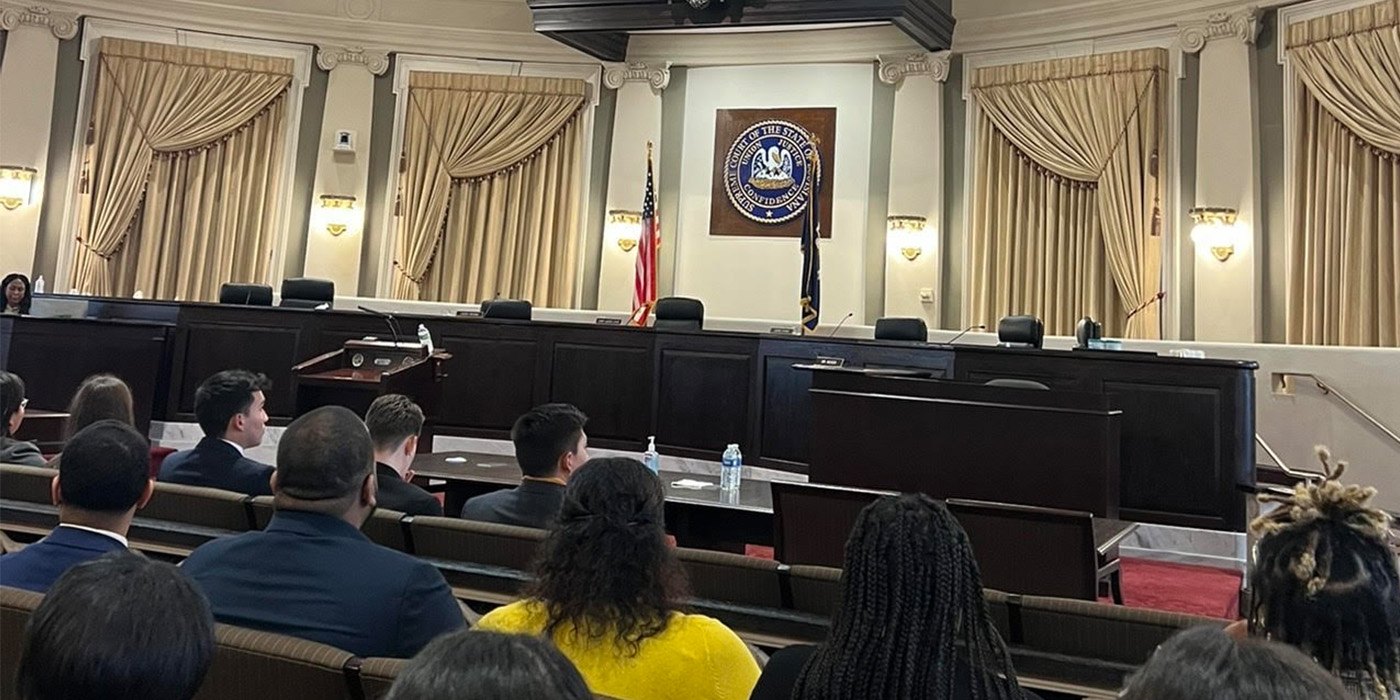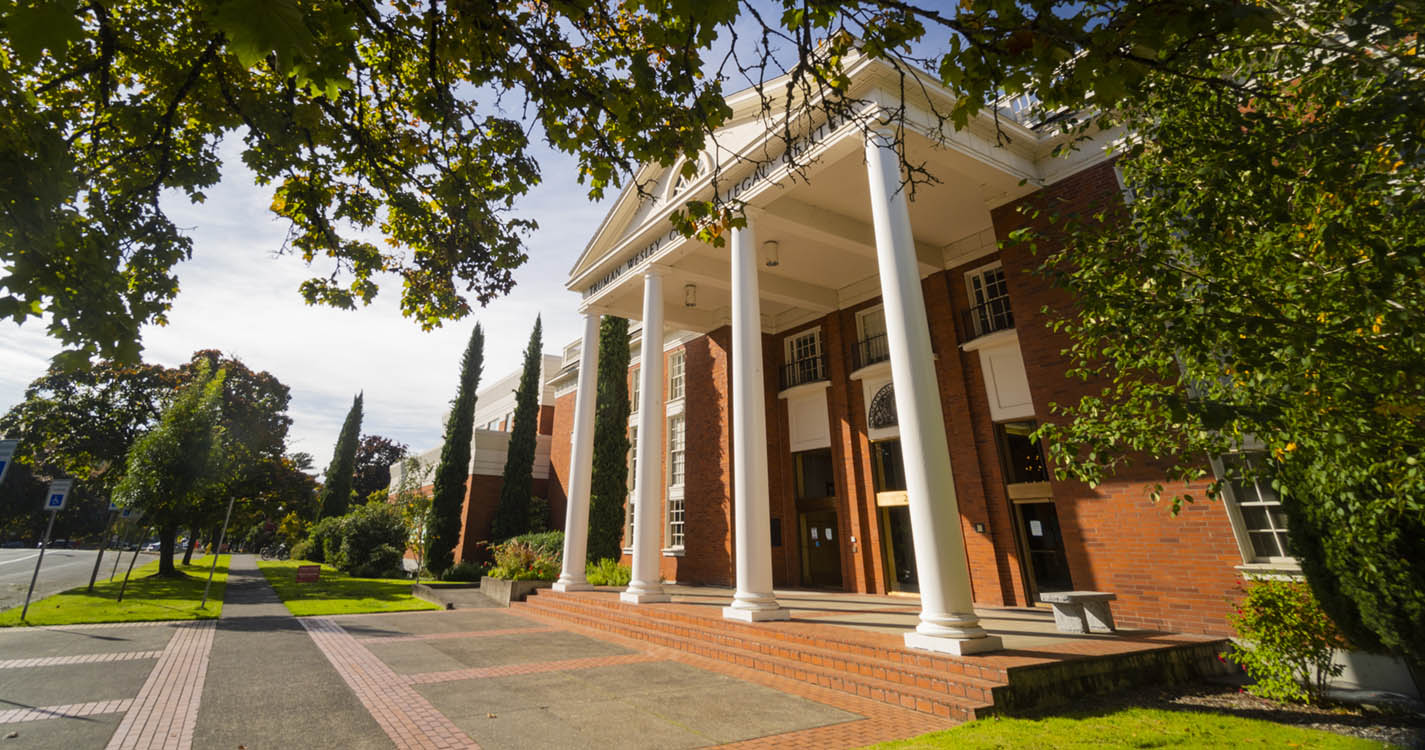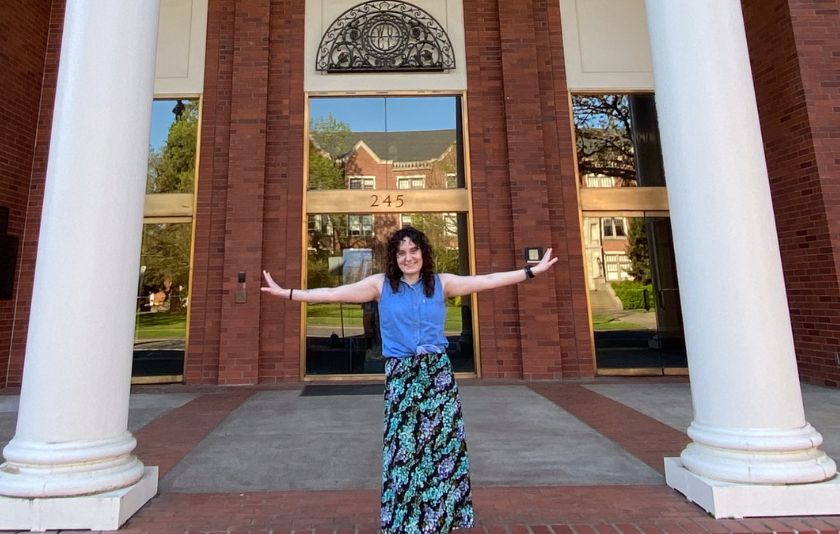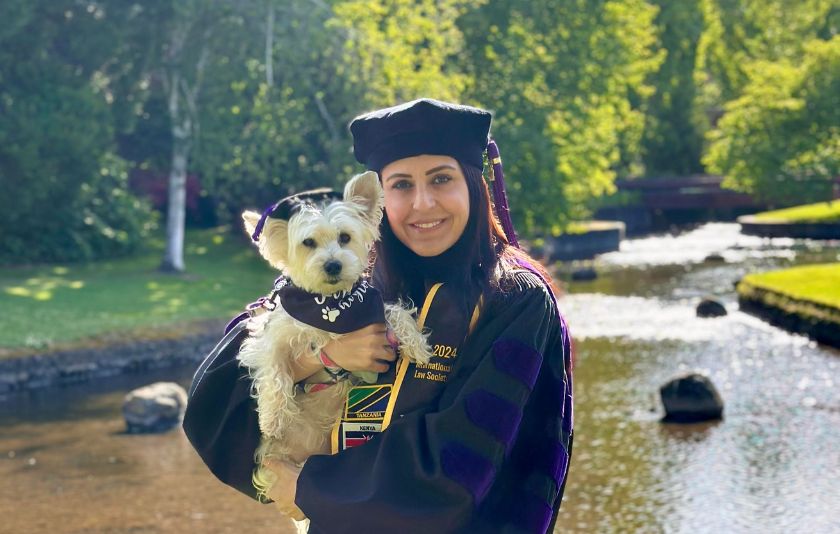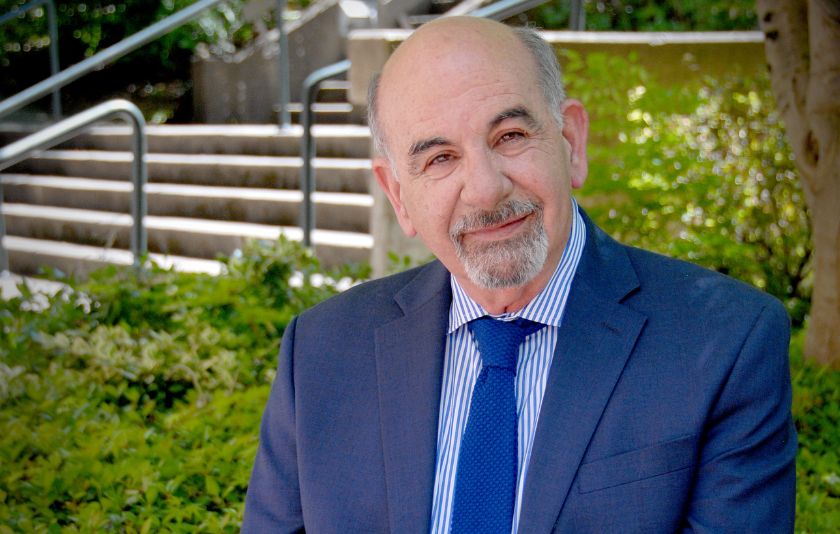For the past 23 years, the American Bar Association Judicial Clerkship Program (JCP) has provided opportunities for diverse law students from across the country to connect with federal, state, and administrative judges and lawyers, and to experience the work of a judicial clerk. This year, Willamette Law sent two students to New Orleans to spend three days learning firsthand about judicial clerkships.
Irma Alvarez Carrillo JD’24 signed up for JCP to explore what career paths could be available after graduation. Alvarez Carrillo always knew she wanted to go to law school and has enjoyed seeing how judges work and interact with their cases. While she shares that having judges as professors at Willamette Law is significant, this program allowed her to see firsthand how they work and judges look for in judicial clerk candidates.
“The program was particularly interesting to me because you often hear that these processes can be selective, and if you don’t have a particular background you can be overlooked,” she shares. By encouraging diverse students to interact with judges, the program helps them to not self-select out of the process. Too often, historically underrepresented students won’t apply because they don’t see other clerks or judges that look like them and come from similar backgrounds, Alvarez Carrillo states.
“Sometimes students opt not to apply for a position because of their background or GPA. A big overarching theme of the program was to apply and to not take yourself out of the running because you aren’t certain your resume perfectly aligns with the position,” she shares.
Jarely Castro JD’23, one of the Willamette Law JCP attendees, says “the legal profession is, historically, not very diverse. The program showed me that we are all capable of succeeding and that we can obtain valuable opportunities, like a judicial clerkship, if we don’t self-select ourselves out of the running.”
While growing up in a small town in Wyoming, Castro had met very few lawyers. It was meeting her parents’ immigration attorney that inspired her to become an advocate for other people. The JCP introduced Castro to fellow law students, lawyers, and judges that have similar backgrounds and experiences. By hearing more about their stories and experiences, Castro saw that she was capable of accomplishing the same goals.
“This experience was great. I got to learn from the people there, meet judges and receive feedback from them, and attend oral arguments at the Louisiana Supreme Court. One of the most valuable opportunities was the chance to have my resume reviewed by a judge,” Castro shares.
As first-generation students, both Alvarez Carrillo and Castro reflect on the importance of finding community both in law school and in future practice. This is frequently a pivotal aspect in ensuring people accomplish their goals and don’t get lost in the shuffle of the legal profession, they share.
“It’s easier to navigate law school and the isolation that can exist by finding people that understand you and your circumstances. It makes a world of difference. The Multicultural Law Students Association and the Latinx Law Student Association were where I found a sense of belonging,” Alvarez Carrillo says.
The JCP has deepened both students’ feeling of community within the legal profession. Meeting other diverse students and judges has had a profound impact on how they are approaching their legal education and finding a judicial clerkship position. Alvarez Carillo and Castro both heard about this opportunity from the Office of Career Planning & Development.
“I am so grateful to Associate Directors Tomas Hernandez and Bev Ecklund for guiding me through and supporting me during the process,” Alvarez Carillo says.
“I am appreciative of this opportunity, it’s important to continue to provide more opportunities like this for minority and first generation students who come to law school. These resources are gold for us, it can really inspire and motivate us,” shares Castro.
